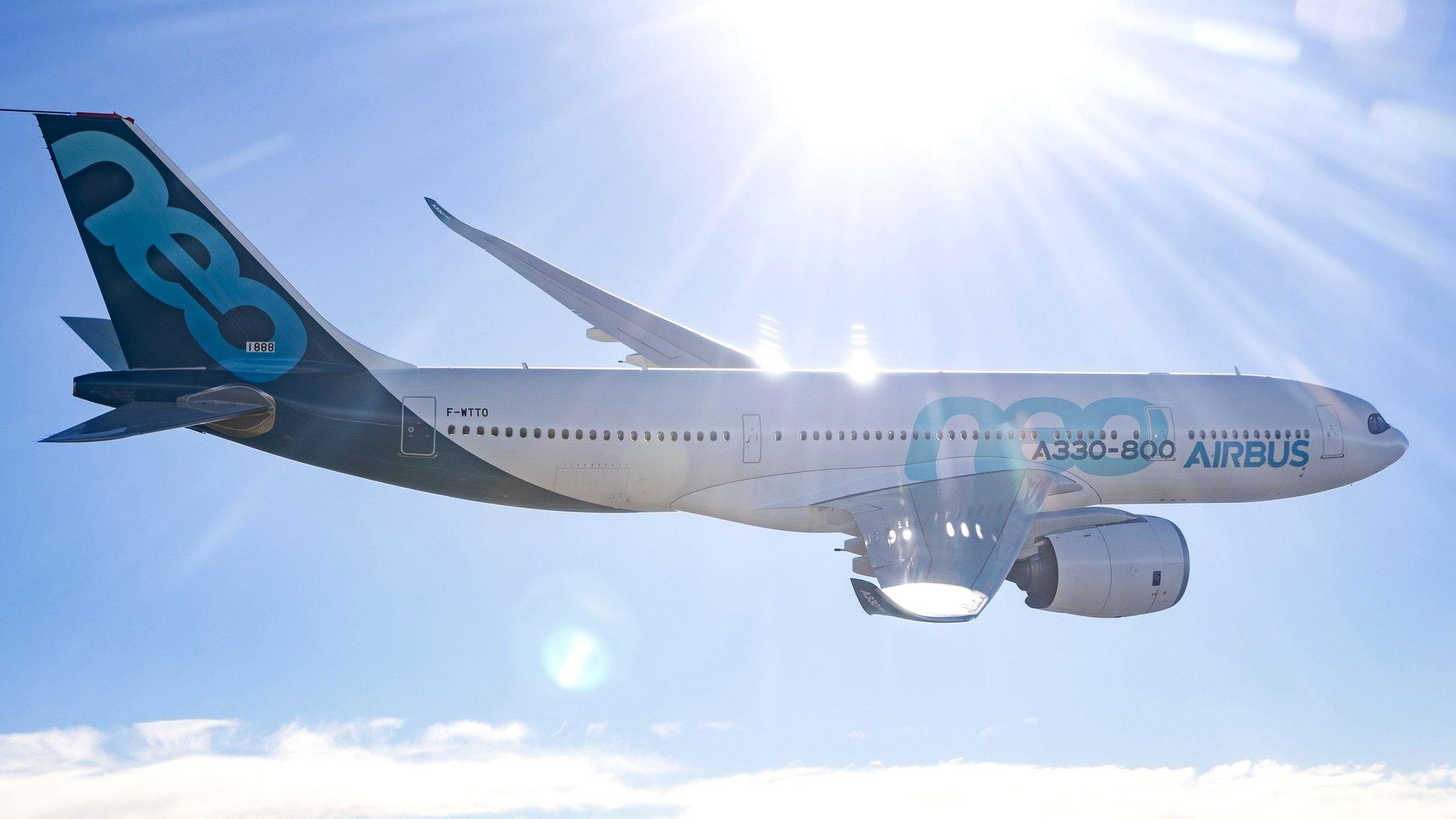What impact will US tariffs have on Scotch whisky?
- Published
- comments

A 25% tariff on single malt Scotch whisky exports to the United States is being introduced on Friday.
The new duty is among measures being imposed by the US in retaliation against EU subsidies given to aircraft maker Airbus.
Other goods being targeted, external include cashmere sweaters and sweet biscuits.
Here, BBC Scotland looks at the scale of the Scotch whisky market in the US and the potential impact on sales of whisky and other Scottish products across the pond.
How much Scotch is sold in the US?
According to analysis of HMRC figures by the Scotch Whisky Association (SWA), Scotch exports to America last year were worth $1.3bn (£1bn). Single malts represented 33% of that.
The US market accounted for 22% of global value and 10.7% of global volumes of Scotch whisky exports.
Of 137 million bottles of Scotch exported to the US in 2018, just under 25 million were single malts.
How will the new tariff affect single malt sales in the US?
It is hard to estimate just how big a hit Scotch whisky producers could take, but the industry - which employs about 11,000 people in Scotland - is worried.
The SWA has noted that European Union imports of US whiskey fell by about 20% after the EU imposed a 25% tariff on the import of bourbon last year.
It expects single malt whisky to experience a similar drop over the next 12 months as Scotch becomes less competitive in the US market.
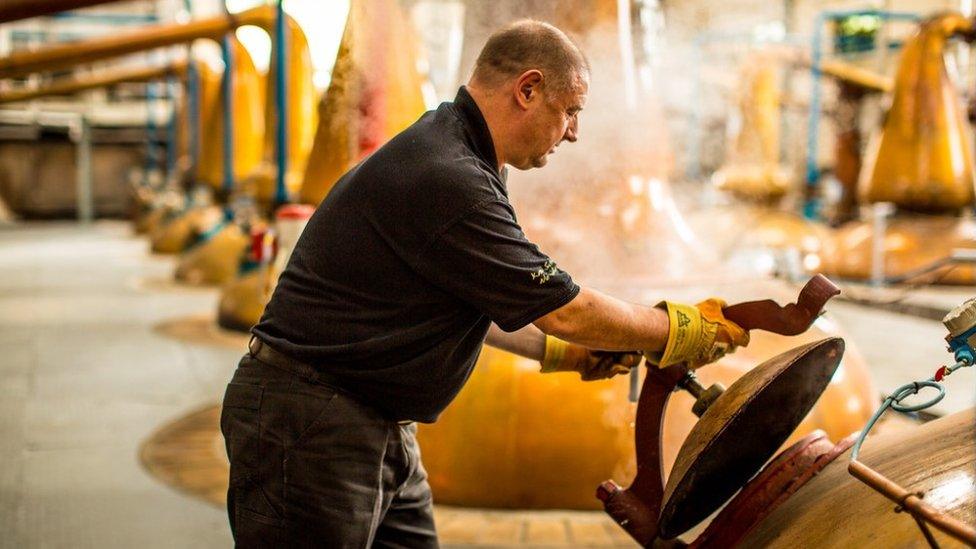
SWA chief executive Karen Betts added: "In time, consumer choice will diminish and Scotch whisky companies will start to lose market share.
"In Scotland and throughout our UK supply chain, we expect to see a dropping-off in investment and productivity.
"Ultimately, jobs could be at risk."
She said: "We now need the UK and Scottish governments to work together to ensure distillers can weather the storm.
"We want them to consider a range of support to the industry, including reducing the UK tax burden on Scotch whisky in the autumn Budget."
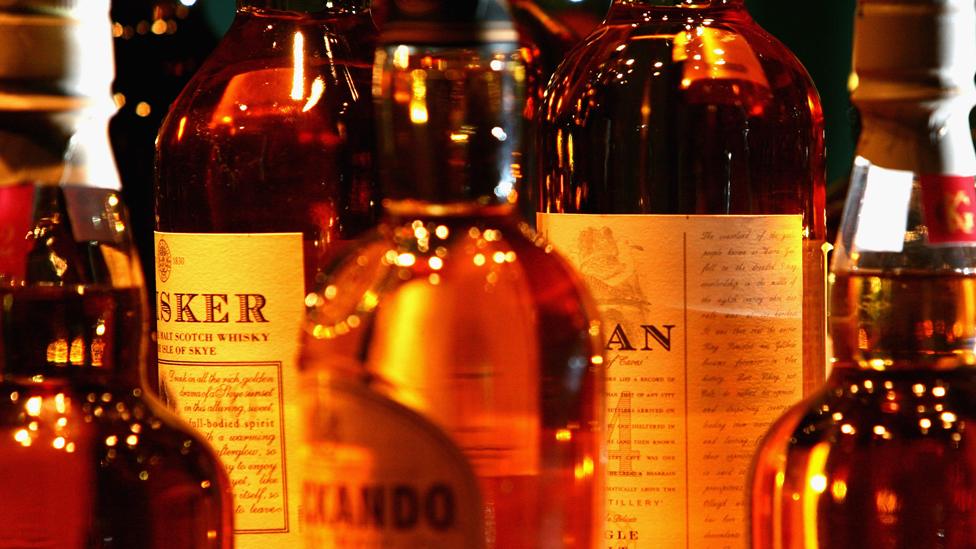
At least one distillery said it was reconsidering plans to increase its exports to the US, as a result of the new duty.
Speyside Distillers currently sends 60,000 bottles of Spey single malt to America each year.
Managing director Patricia Dillon told the BBC: "Because of the 25% tariffs that have been implemented in the US, this is something that we can't possibly absorb into our business so what we have to do is reconsider the market in the US that we are currently in."
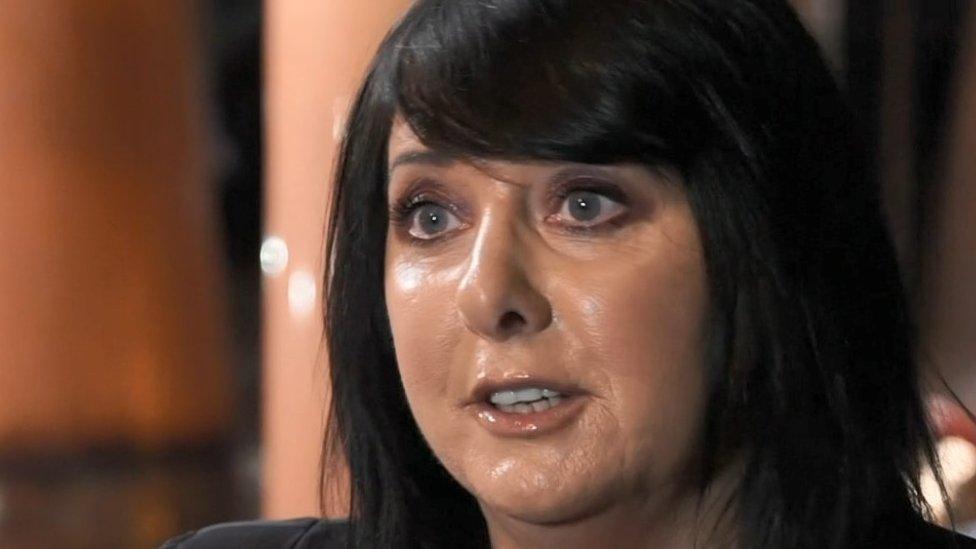
Patricia Dillon said her company was reconsidering its plans for the US
Industry experts also expect single malt sales in the US to take a hit as a result of the new duty.
Alan Gray, author of the Scotch Whisky Industry Review, said: "Obviously the tariffs will have implications for sales.
"There are well off people who may not think too much about the price of a premium malt but many will look at it and decide whether or not they want to pay more.
"One good example is minimum pricing for alcohol which increased prices for many blends. This had a negative effect on sales in the UK because there is price sensitivity."
What effect will the tariffs have on shortbread producers?
Moray-based Walkers Shortbread, which is Britain's biggest exporter of sweet biscuits, described the new duty as a "very great concern".
According to joint managing director Jim Walker, the company exported 5,000 tonnes of shortbread - more than a 10th of its total production - to America last year.
Mr Walker said that with 1,600 people employed in Aberlour for the peak period leading up to Christmas, the firm would continue production and may scale down for the new year.
About half of the festive season stock has already been delivered to the US, so has avoided tariffs.
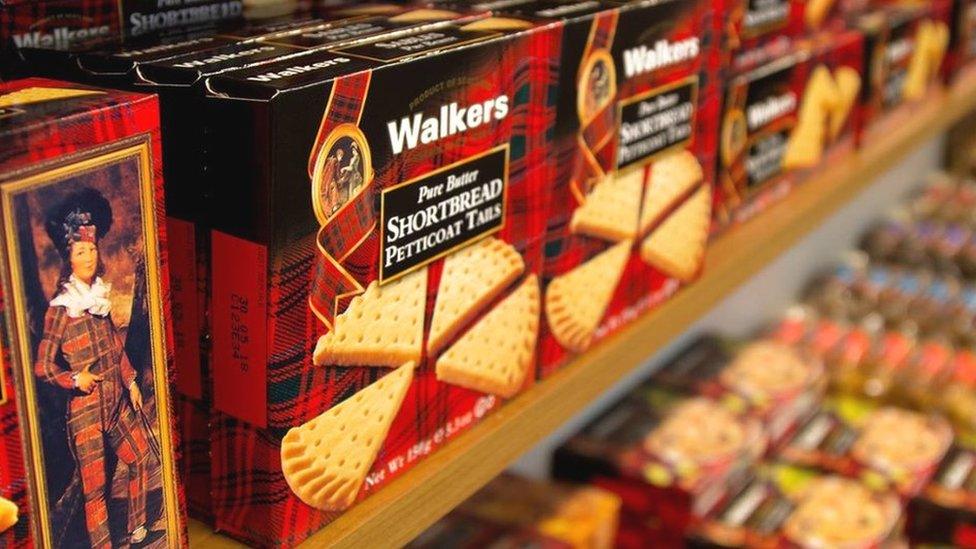
Mr Walker also said no decisions been made about pricing, and whether the manufacturer, the importing companies or the customer would have to absorb the 25% tariff.
He added: "We just hope that it won't be permanent. It could be that they run this for six months or a year, and then rotate it to something different. But it's a very great concern.
"We can only hope we can overcome it and do the best to protect the business and protect jobs."
What about Scottish cashmere producers?
Johnstons of Elgin, the largest manufacturer of cashmere knitwear in the UK, has also expressed concern over the imposition of a 25% tariff on its sector.
The US is its third largest market behind Europe and Japan.
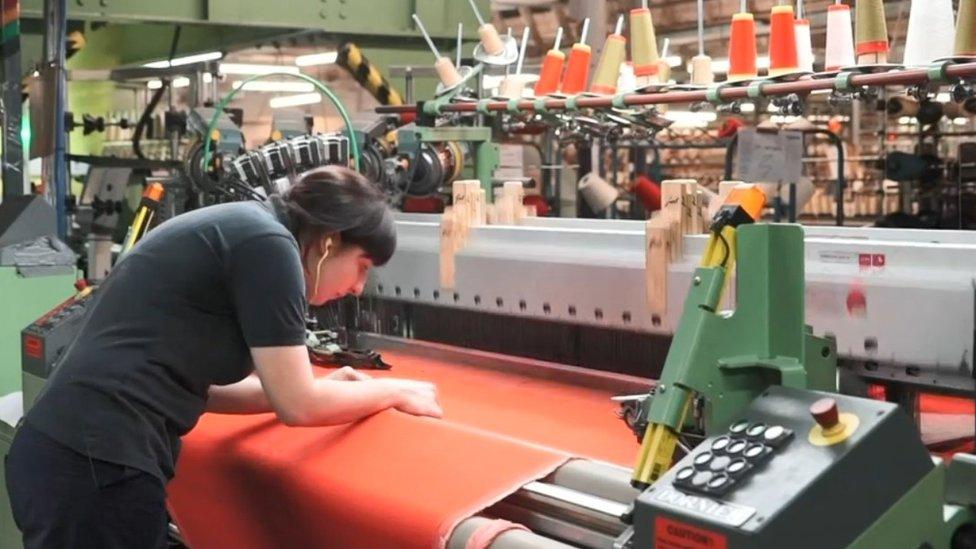
Johnstons of Elgin is the largest manufacturer of cashmere knitwear in the UK
Chief executive Simon Cotton said: "In the very short term we are going to have to absorb these costs because we can't expect people to pay more for products they have already ordered.
"In the longer term this is going to hit consumers in the US, and that it is going to mean that their cashmere is going to become more expensive.
"That, in turn, means we will be able to export less, grow less and will have to downscale our plans."
What has the UK government said about the tariffs?
On Thursday, UK Government Minister for Scotland Colin Clark said he was "deeply disappointed" by their imminent introduction.
He added: "These tariffs will not only have a significant impact on the export of aircraft and whisky but on many great Scottish industries such as textiles, including cashmere, and biscuits.
"The UK government has raised the issue at the highest levels with both the EU and the US, including with President Trump, and will continue to do so until these tariffs are dropped."
- Published3 October 2019
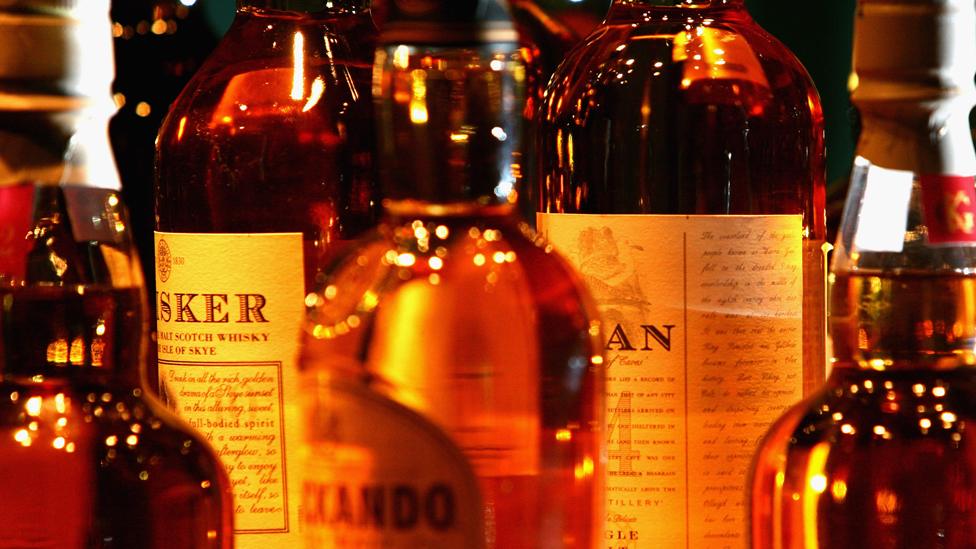
- Published2 October 2019
